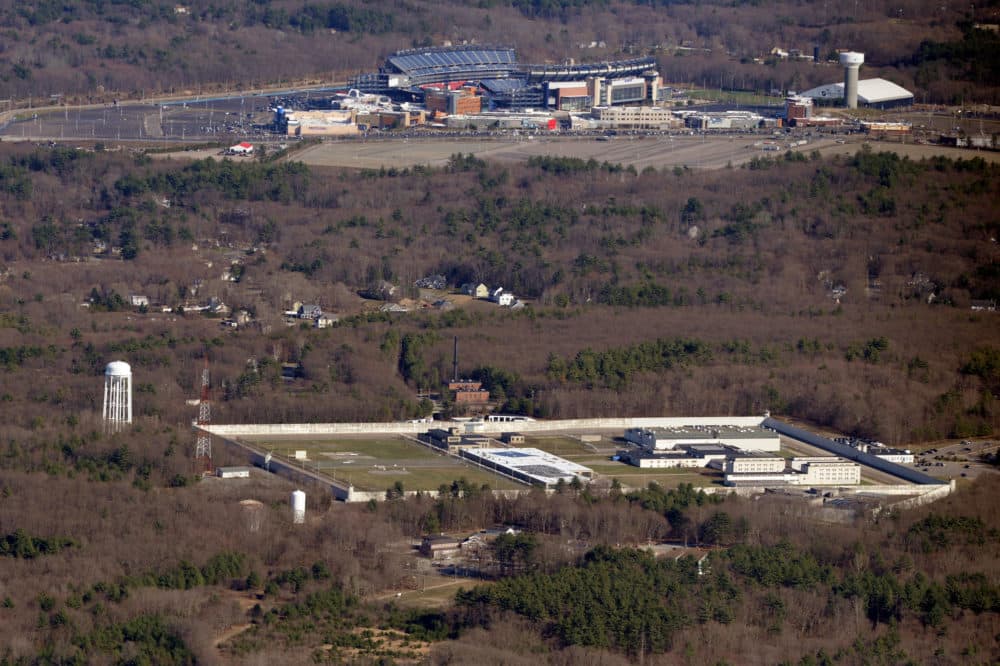Advertisement
Mass. will close one of its oldest prisons

One of Massachusetts' oldest prisons will no longer house prisoners.
The Department of Correction said Thursday it will shutter MCI-Cedar Junction at Walpole within two years, citing a reduced incarceration rate and high maintenance costs.
There are 525 men held at MCI-Cedar Junction, the department said, which means the prison is operating at only 68% capacity. The state now has the lowest incarceration rate in 35 years, with almost 6,000 people in custody in 16 correctional facilities, the department said.
In a statement announcing the closure, Public Safety and Security Secretary Terrence Reidy highlighted partnerships with Gov. Charlie Baker and state lawmakers on criminal justice reform.
"The fruit of that work — the lowest level of incarceration in decades — was achieved by providing at-risk individuals with pathways to positive life choices, creating new re-entry services, and empowering returning citizens to rebuild their lives in meaningful ways," Reidy said. "It also allows us to consolidate the number of operational facilities and renew our focus on delivering effective services to women and men in DOC's care."
The DOC said MCI-Cedar Junction, which opened in 1955, needs about $30 million in infrastructure repairs.
The closure will happen in three phases over two years, with the first phase expected to begin by this summer. That's when Cedar Junction's diagnostic and reception center — where newly sentenced men are sent to be evaluated for security classification — will move to the Souza-Baranowski Correctional Center, the state's maximum security prison in Lancaster.
In the second phase, prisoners from the Behavioral Management Unit will be moved to other facilities. In the third phase, to be completed by 2024, the Department Disciplinary Unit will be dissolved.
The DOC said eliminating the latter unit is part of efforts to reform its approach to discipline. An independent report last year recommended closing the disciplinary unit, where prisoners are often sent for long-term solitary confinement.
Advertisement
State Sen. Jamie Eldridge, co-chair of the legislature's Judiciary Committee, called the disciplinary unit's dissolution "very welcomed" and said he sees the broader shutdown of MCI-Cedar Junction as a "really important moment."
Eldridge and more than a dozen other lawmakers wrote to the governor earlier this month asking him to close state prisons because of the decline in the number of people incarcerated.
"It's a racial justice victory, it's a victory for the effort to reduce mass incarceration," Eldridge said. "We just need to be vigilant to make sure that this governor — and, quite honestly, the next governor — is committed to taking the savings from a closed prison and putting it back into communities and to the people that were disproportionately impacted by the mass-incarceration era that we had in Massachusetts."
The number of prisoners in Massachusetts has fallen 42% since 2012. According to the DOC the average annual cost per prisoner at MCI-Cedar Junction is more than $110,000.
"DOC remains committed to stewarding taxpayer resources responsibly and fulfilling our rehabilitation-focused mission," DOC Commissioner Carol Mici said. "This decision, and the subsequent consolidation of resources across fewer locations, allows us to eliminate redundancies and deepen our investments in programming, staffing, and services."
